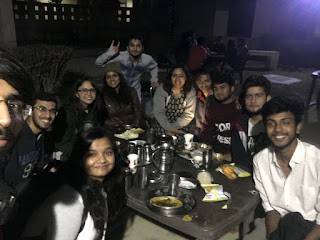Why I do not support the Bullet Train Project

I was pointed to an article during a Twitter discussion on the Bullet Train project a little while back. Entitled " The Economics of the Bullet Train and Whether It Makes Financial Sense To Take a 0.1% loan ", it concludes that the project is economically feasible. As a student of earth science, this is my response to the article, as well as my take on the Bullet Train in the context of the climate crisis. The Assumptions With no background in economics, finance or rail technology, I am not in any position to comment on those aspects of the project. Hence, I begin with the assumptions that: The interest rate is very generous (with whatever assumptions required about exchange rates, etc). The Shikansen system is plain awesome. I focus instead on the what the author of the article calls "The "Other" Aspects". My Contentions " Is a bullet train desirable when we don't have enough toilets? " Personally, I do not think build

